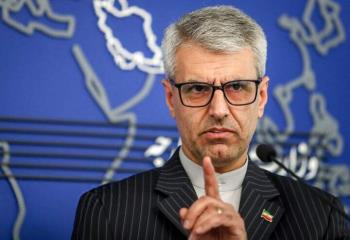Alwaght- A couple of days after signing peace deal between Afghanistan unity government and Hezb-e Islami Gulbuddin led by Gulbuddin Hekmatyar and just before the Brussels Conference on Afghanistan, the Taliban launched assaults on significant Afghan cities and provinces, and even intensified them in past few days. The attacks have left many people displaced in Farah, Lashkargah, and Kunduz.
The peace deal with Hezb-e Islami Gulbuddin, also a militant group, was rated a success for Ashraf Ghani-led unity government. But the offensives by the Taliban, which opposes presence of foreign forces like NATO's and US' in Afghanistan, before the Norway-hosted conference to help Afghanistan have marred the would-be outcomes of the Kabul agreement with rebels.
The militants stormed the city, managing to capture parts of it. While the clashes went on, the rebels managed to capture the main square in downtown Kunduz. In efforts to recapture the city from the militants the Afghan government sent further forces and top generals, including General Abdul Rashid Dostum who also serves as vice-president.
Meanwhile, the governor of Kunduz has blamed Taliban’s advances on the performance of the Deputy Chief of Staff Morad Ali Morad.
“If someone dies, it is the will of God, no one can die without the will of God,” Omar Khail posted on Twitter, drawing criticism from President Ashraf Ghani who said some officials instead of doing their duties justify the civilian casualties.
Furthermore, the former president Hamid Karzai said that Taliban was an Afghan group and so it reserved the right to capture areas in the country while forces like the American troops are foreign and must pull out of the country. The comments were said to carry the potentials of encouraging the militants to press ahead for more captures on the grounds that there are voices in the country that favor their rise again.
On the other side, just beyond the border, Pakistan stands as an influential player in Afghanistan’s developments. Kabul for years has been asking Islamabad not to offer the militants support and safe haven. Pakistan is said to have close relations with Haqqani Network, also an anti-Kabul insurgent group that conducts major assaults on Afghan cities.
Rahmatullah Nabil, the acting director of the Afghanistan National Security Council, has resigned from post in protest to Afghanistan government’s continuing cooperation with Pakistan. He argued that Haqqani Network’s militants in Afghanistan prisons should be executed for terror actions.
Links between Haqqani Network and Pakistan's security service Inter-Services Intelligence (ISI) have stood as creating concerns for Kabul officials. Some experts suggest that ISI is in direct connections with the militants in Afghanistan.
Very recently, Lashkargah city in southern Afghanistan has come under militants' heavy attacks. Although they managed to make advances, government forces responded and resisted to the offensives and so saved the city from fall to the Taliban. The clashes left many people displaced not only in Lashkargah but also in Faryab province as well as Ghormach in Baghdis province.
Another trouble for the Afghan government is the return of large numbers of refugees who left the country in hopes of getting better life conditions.
The Afghan Ministry of Refugees and Repatriations under international pressures signed a deal that obliges it to prepare appropriate grounds for the return of Afghan refugees to home. The accord ties delivering aids to Kabul to doing so much work to prepare the country for refugees’ return.
The Brussels Conference on Afghanistan has pledged to continue aids to Kabul government in the upcoming years. The participants vowed $15 billion in aids to the war-torn country to push it restore peace and stability.
Meanwhile, Pakistan has offered student scholarships and a $500 million aid package in a bid to take on a growing toehold of India in Afghanistan.
A look at Afghanistan makes it clear that interventions of the US, NATO, and the neighboring countries like Pakistan will not allow peace to see the light in Afghanistan.
Analysts offer holding talks between Kabul and Taliban with participation of India, Russia, and Iran to make the way towards peace in Afghanistan.



























